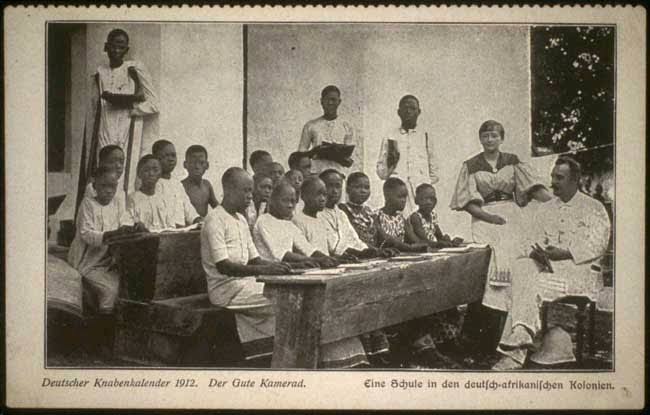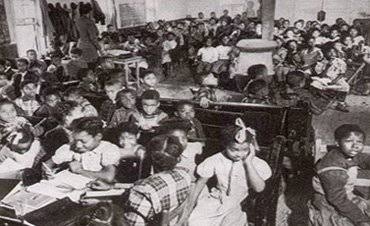
The time of the foundation of the colonial experience at the Cape in 1652 was the same as the beginning of education in South Africa. Six years after, the Dutch East India Company established its colony at the Cape, the first formal school is begun in 1658. This school was founded by Commander Jan van Riebeeck for the slave children brought to the Cape in the Dutch ship, the Amersfoort, which had captured them off a Portuguese slaver.
For two reasons, extremely significant is the establishment of the first school in the history of South Africa. Firstly, this school had many of the characteristics that have come to frame the South African experience. It was profoundly oppressive. As the slave children are enrolled, so they are forced to take new identities. Nothing of their past was given recognition in the school. Their treatment by the colonial authorities was harsh. And then, to buy their obedience, they were plied with alcohol. But, like their descendents who refused to accept anything less than the best education that can be provided, they rejected this degraded education. They did this by escaping from the school into the mountains surrounding the Cape. The significance of this school in presenting the themes of domination and resistance, is vital for understanding South African education.

The other important feature of the period takes us, however, into a different direction. While this early school was extremely oppressive, we have, in this first 150 years of Dutch occupation of the Cape, a number of deeply important developments such as classic vignettes. These speak powerfully to our understanding of South African history. While slaves and the indigenous people, the Khoisan, faced great challenges during this time because of the harsh laws of the Dutch, we see a number of instances where these oppressed people begin to organise themselves. This is in defiance of the Dutch East India Company or without their knowledge.
Two instances are important to record for understanding the South African history differently. The first is that contrary to much of the historical narrative, even that which is sympathetic to the cause of the oppressed and which gives no or little voice to the marginalised, the slaves and the Khoisan exercised agency. They taught themselves to read in communities like Genadendal or, as they did in the heart of the Colonial town of Cape Town, they kept themselves religiously intact by starting madrassas, Islamic schools, where they taught each other to read and write. Out of this experience, notably, comes the first formal writing in Africa.

The establishment of a proper system of education begins with the period of British rule at the Cape. This period was marked by a systematic attempt on the part of the British to anglicise Cape society. The period beginning with the occupation of the Cape by the British in 1795 ushers in important social, political and economic developments. The slave trade was abolished in Britain in 1807 and slavery was formally abolished in all colonies of the British empire, including the colony at the Cape, in 1833. The period is marked by the emergence of colonialism proper.
The Schools played a very Signigicant and influential role in this experience. In 1839 an Education Department was established at the Cape with a superintendent, James Rose Innes, at its head. This position was bureaucratised with an administrative apparatus by the end of the century. In Natal, after annexation in 1843, attempts were made to develop an education structure. These only stabilised in 1858. Meanwhile, constitutional provision was made for education in the Transvaal Republic in 1858 and properly so in 1863 in the Orange Free State. Important about this period is that it marks the institutionalization of education in the country and its formal deployment in the cause of building a white identity.
One might refer to this period as a period of state-building on the part of the white establishment. The great apparatuses of power were introduced, such as the formal parliaments, the institutions of the military, the hospital services, and alongside these, the institution of the Anglican Church. Yet, at the same time, during this period there is evidence of black and white children being educated in common classrooms. The oldest schools in the country, such as the South African College School (SACS) founded in 1829, for example, has children of different colours. As the process of Anglicisation happens, it happens with some ambiguity.

Alongside of this process of formalisation, another key experience takes root. Significant steps continue to be taken by the rapidly growing missionary movement to provide education for both black and white children. This story begins with the arrival of the London Missionary Society in 1799 and takes shape in the work of people like Dr Phillip and the subsequent establishment of important institutions such as Lovedale College. Emerging clearly out of this development, of course, are the abiding themes of conflict. These conflicts are expressed on several levels and persist in the missionary movement itself, in its target community, the African and slave people, and between the missionaries and the latter, into the climactic era of full modernity in the middle of the 20th century. The begining of colonization and the beginning of education in South Africa can definitely not be utterly separated, as the experiences are interwoven.













